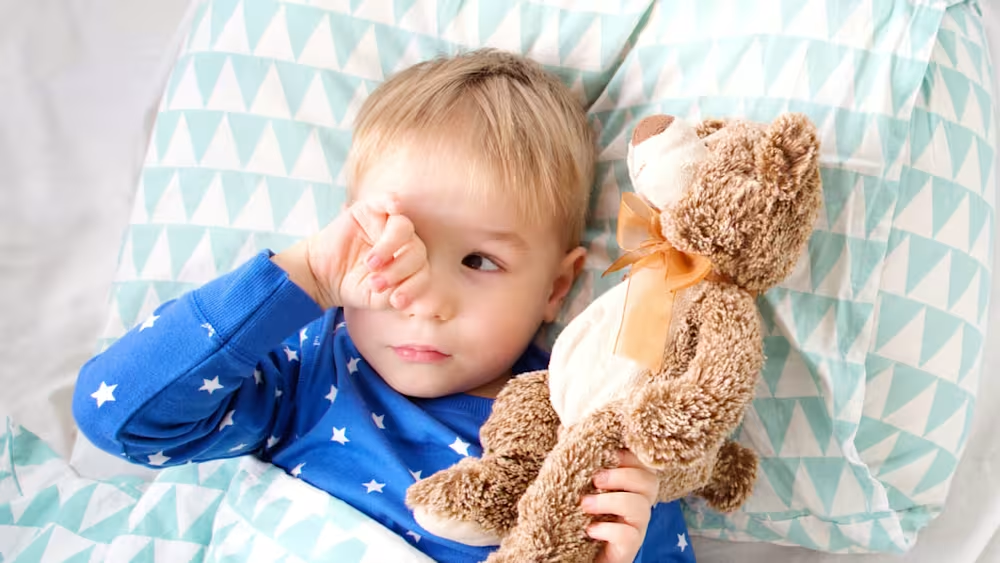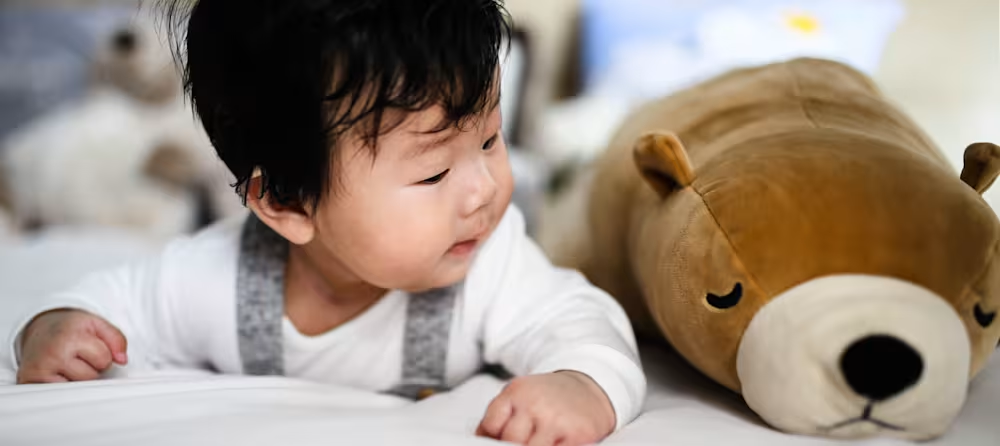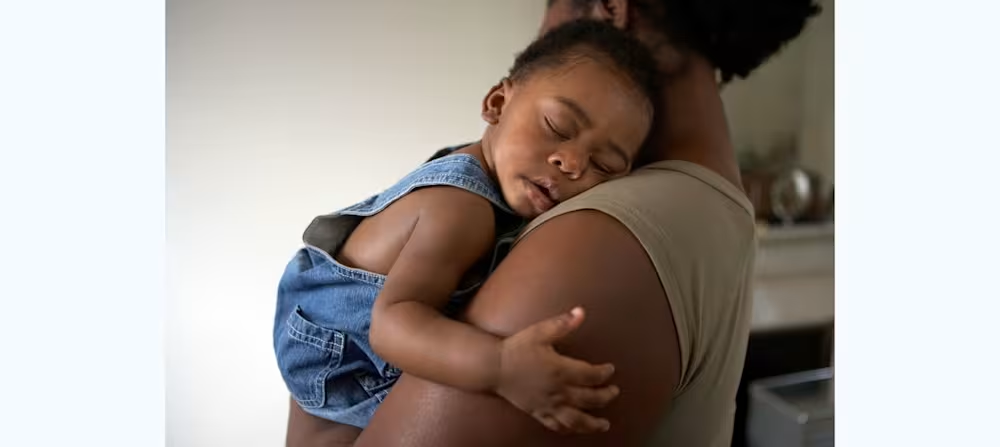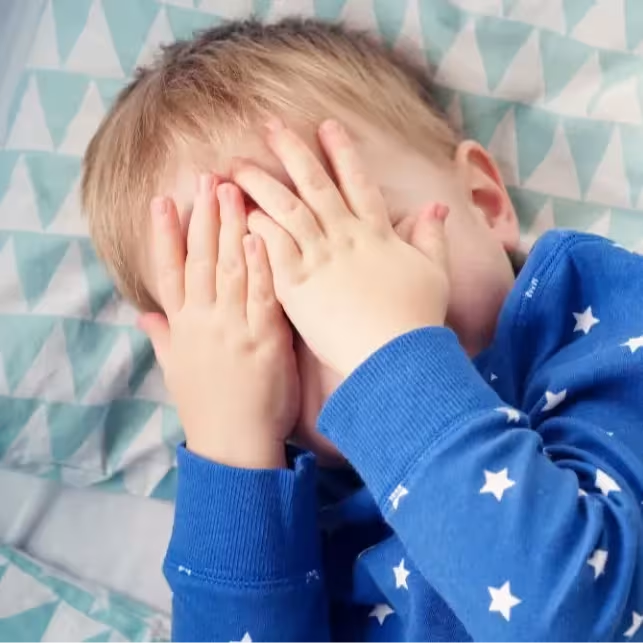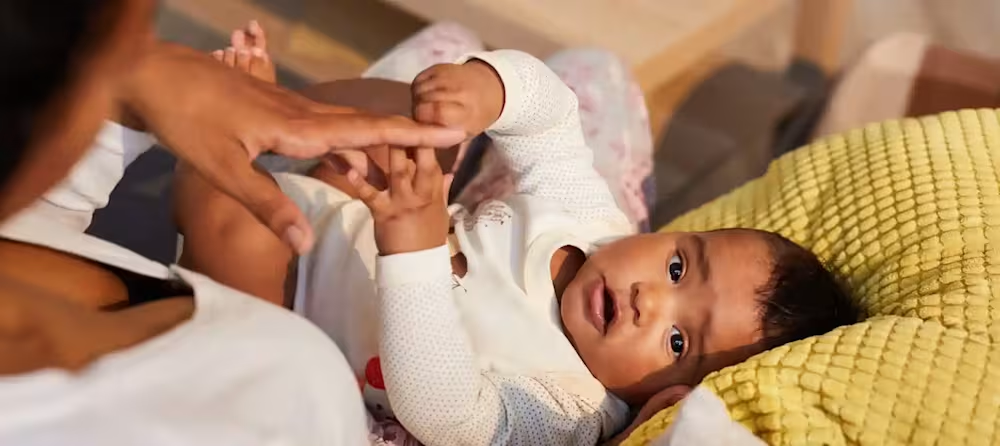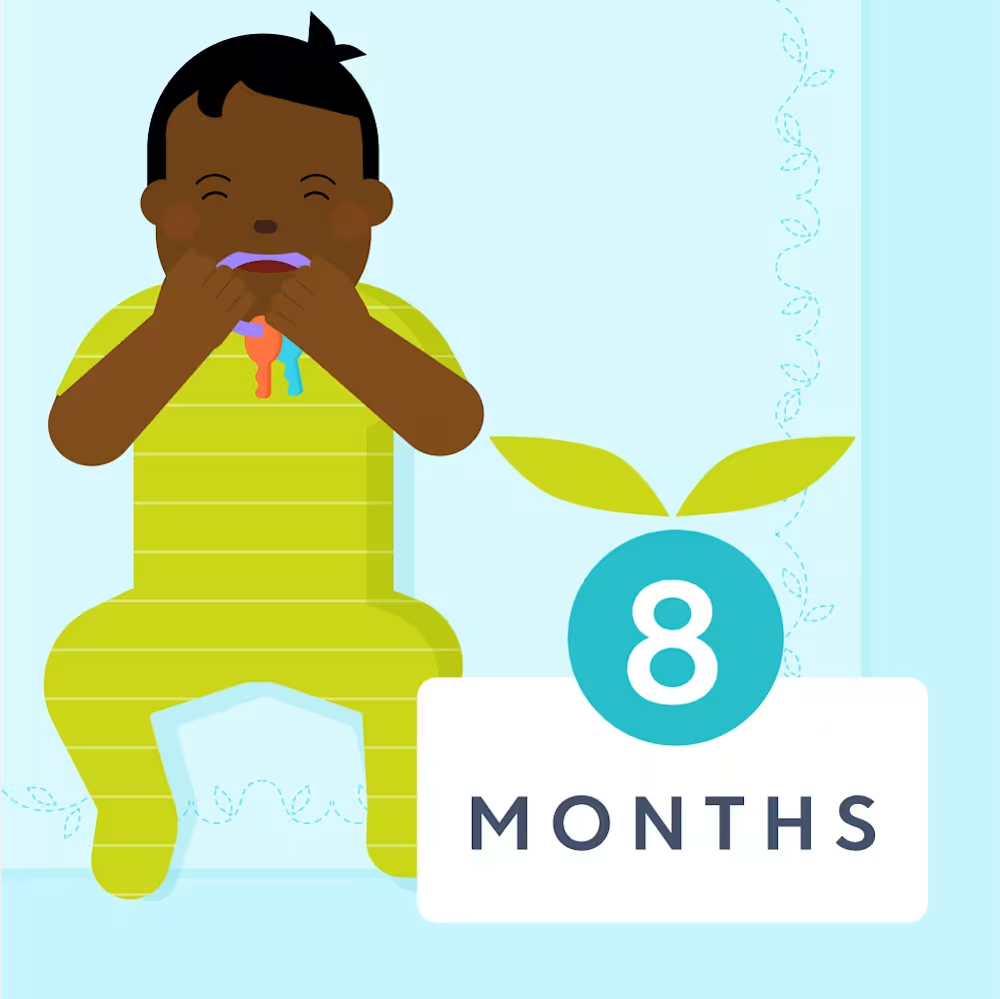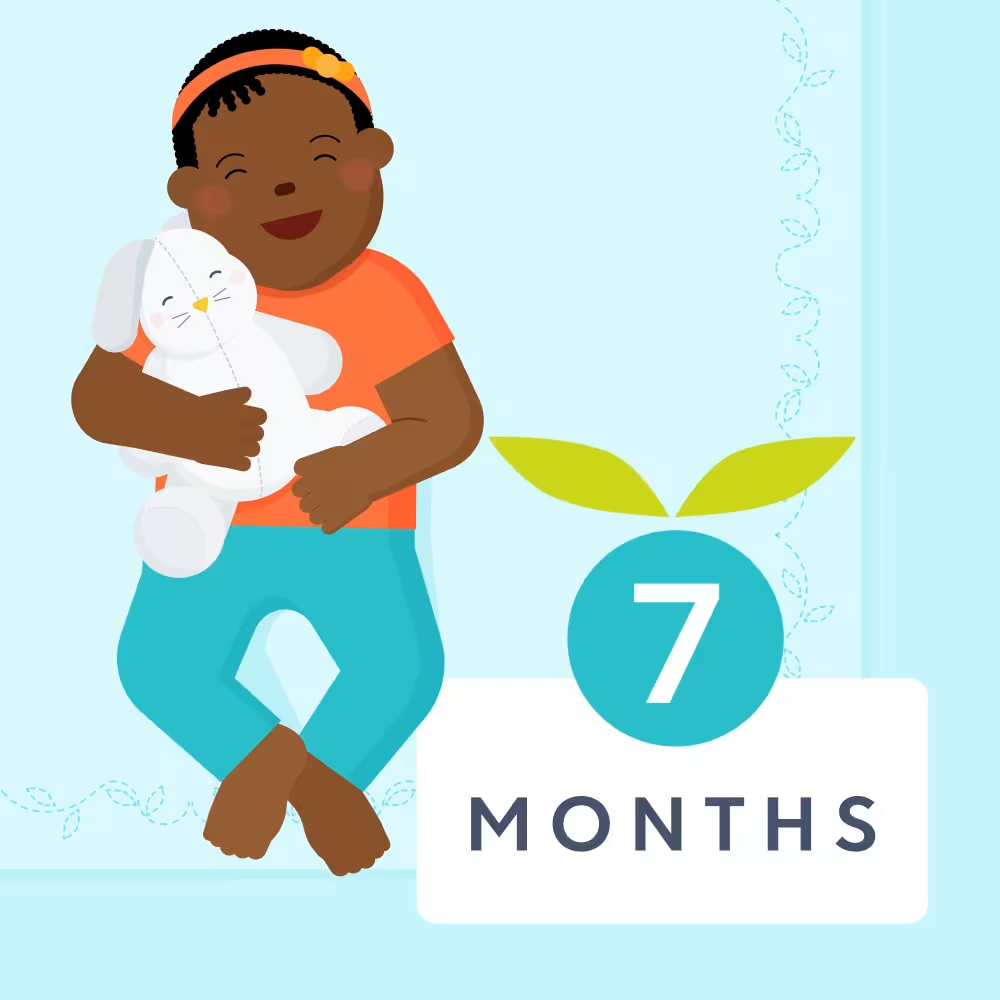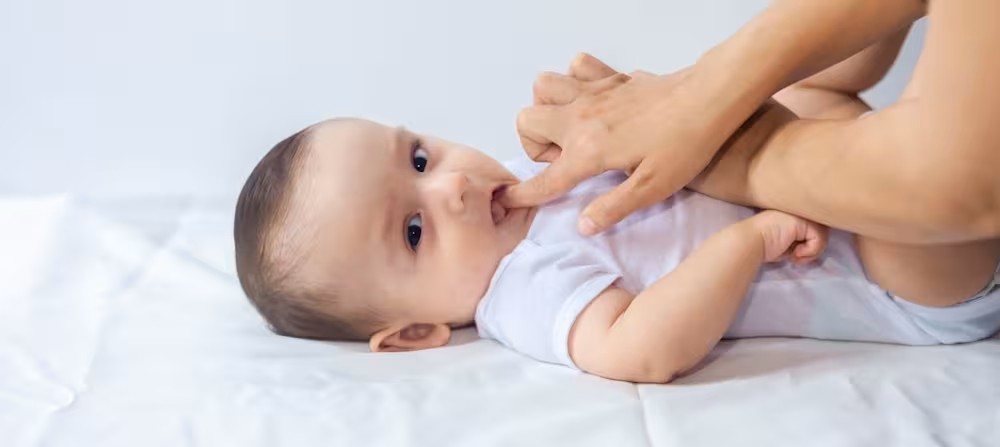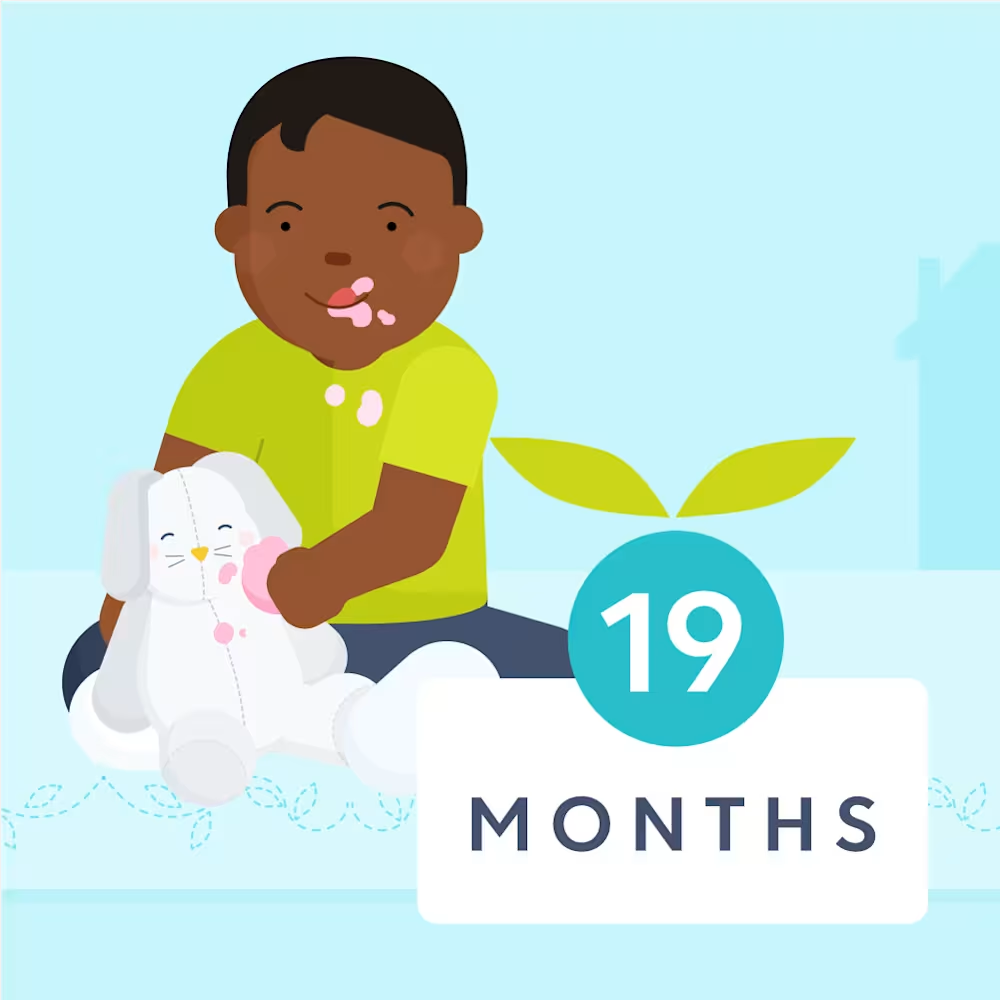Baby sleep regression ages: Causes, charts, months
Updated Dec 19, 2025

Wondering why your baby’s sleep has suddenly changed? Maybe it’s a sleep regression, or maybe it's more of a sleep bump. Read on for our breakdown of the most common sleep-related pitfalls (and solutions) during the first two years so you can handle anything that comes your way.
What is a sleep regression?
We define a “sleep regression” as a sudden and significant decline in sleep patterns. For instance, a 2 year old who starts waking a lot during the night after previously sleeping well on their own would be going through a toddler sleep regression. Likewise, a baby who abruptly stops napping for a week or two would be going through an infant sleep regression. Some resources have parents convinced that chaos will ensue at predetermined ages, but sleep is impacted by so many factors that it’s a bit more complicated than that.
What causes sleep regressions in babies?
When sleep suddenly gets worse, these are the biggest sleep regression contributing factors:
Neurodevelopmental maturation (e.g., the “4 month sleep regression”)
Sleep-onset associations
The need for a schedule adjustment
Illness
Travel or other changes in routine
(such as , , and standing)
Do all babies have sleep regressions?
Despite common belief, there’s no reliable scientific evidence [] to support the idea that every baby undergoes a regression in sleep at a given age.
That said, we do see certain patterns within particular age ranges that tend to negatively impact sleep for many children. While we refer to these as “regressions” we tend to think of them as predictable shifts in sleep patterns. Read on for a typical sleep regression timeline by age.
How long do sleep regressions last?
The length of a sleep regression in babies and toddlers depends on the cause and the strategies used to improve sleep. A 4 month old who is rocked to sleep and suddenly starts frequently waking during the night may continue to see this pattern until they learn to fall asleep independently at bedtime (which could be a week, or months depending on a variety of factors). Whereas a child who has a setback due to an illness may start sleeping better within a week of feeling better.
Common sleep regression ages
Age | Common contributing factors |
|---|---|
3 - 4 months | Biological change in baby's sleep architecture |
7 - 10 months | Developmental milestones, teething, transitioning to two naps, separation anxiety |
14 - 18 months | Transition to 1 daily nap, developmental milestones, testing boundaries and independence |
2 years | Need for a schedule adjustment, pushing limits, two-year molars |
A baby’s sleep architecture significantly changes around 3 months []. This biological change can lead to a change in sleep patterns, which is commonly known as “the 4 month regression” but can impact sleep earlier, at around 3 months.
Around 3 - 4 months old, an infant’s sleep matures. Suddenly they’re sleeping in stages and cycles, similar to an adult []. How much this developmental change will impact your baby's sleep depends in part on how they fall asleep.
If a baby has already started to learn the skill of falling asleep without parental assistance (i.e. they are put into their crib while they are still awake and drift off to sleep without being helped), this shift in sleep cycles may not impact your child’s sleep much at all.
On the other hand, if your child (like many babies in this age group) is fed, rocked, or otherwise helped to sleep, you’re more likely to see an increase in night wakings and short naps.
While 5 months is not a common age for a developmental regression, a sleep regression can occur at any age. It’s possible that your 5 month old is still experiencing sleep issues after their sleep cycles and stages change around .
While 6 months is not a common age for a developmental regression, sleep regressions in babies can occur at any age.
Between 7 - 10 months, babies begin to become more mobile, cut teeth, and transition to two naps. Separation anxiety also often peaks at this age. (You can read about here.)
Children who used to lay down at bedtime and peacefully fall asleep are suddenly standing up and reaching for their parents, refusing to follow the bedtime routine that used to work so well.
We also see a lot of overtiredness, as a result of the 3-to-2 nap transition. Dropping that third nap often temporarily results in difficulty falling asleep and staying asleep at bedtime.
While sleep regressions can happen at any age, we find that there are often patterns within particular age ranges that tend to negatively impact sleep for many children. At 10 months, it’s possible that your little one’s sleep is being impacted by developmental changes associated with the “” mentioned above.
When toddlers reach 14 - 18 months old, we see another round of developmental milestones that can lead to a toddler sleep regression []. Children go through another nap transition (hello, one nap in the middle of the day) which can cause overtiredness as children adjust to staying awake for longer periods.
What makes this period particularly challenging, however, is that children start to test boundaries and seek independence. “No” may become your toddler’s new favorite word.
Bedtime can become much more challenging when your child no longer goes along with your sleep plan and experiments with their own ideas. You may even notice sleep issues prior to this point since a can also be common.
Two main sleep issues plaguing parents of two year olds? Nap strikes and stalling at bedtime.
At this age, many children need longer periods of awake time in order to be sufficiently tired for sleep. That means that they are less likely to settle at naps and bedtime when they’re offered too early. Couple that with their continued interest in pushing limits and seeking autonomy [] and bedtime often becomes a battle of wills alongside a toddler sleep regression.
Two year molars coming in can also make things tough for toddlers who aren’t very interested in sleeping anyway.
External sleep regression stages
Nap transitions and rapid brain development can cause predictable bumps in your child’s sleep journey. However, they aren’t the only foreseeable causes of sudden sleep issues.
We often see changes in sleep habits after a child gets sick, travels, or experiences a big change (such as a move, the birth of a sibling, or ). It’s common for children to need more comfort during these times. While it’s understandable (and encouraged!) to offer additional comfort as needed, it’s at these times that parents often stray from their typical routines in order to help their child sleep.
What are the signs of a sleep regression?
New and significant changes in sleeping habits can signal an infant or toddler sleep regression. These sudden shifts can impact both day and night sleep. Here are the most common signs of sleep regressions in babies and toddlers:
6 tips to handle infant sleep regressions
Tip | Notes |
Reevaluate day sleep | Adjust the number of naps to match your baby’s developmental needs, ensuring neither too much nor too little daytime sleep disrupts nighttime sleep. |
Find the right schedule | Use age-appropriate nap and bedtime routines to prevent sleep problems caused by mistimed naps, adjusting schedule transitions as needed. |
Try to be patient | Developmental milestones can make babies want to practice new skills during naptime; allow time and practice during the day to reduce night interruptions. |
Consider sleep training | Teaching your baby to fall asleep independently can improve sleep quality and reduce night wakings. |
Reset expectations | Temporary extra help at sleep times can create new sleep associations. Get back on track by staying consistent and ensuring they learn to fall asleep independently once again. |
Expert guidance | With Huckleberry Premium, a personalized, step-by-step Sleep Plan subscription can help you navigate challenging sleep issues. |
Tip #1: Reevaluate day sleep
As children develop, their sleep needs evolve. Since many of the sleep problems that are common during a regression can be caused by the wrong number of naps, targeting an optimal number of naps can help ensure that sleep issues aren’t exacerbated by too little or too much day sleep [].
Consult the chart below to help determine whether your baby is taking the right amount of naps for their age. Adjusting daytime sleep might be helpful to fix sleep problems.
Tip #2: Find the right schedule
Scheduling issues can lead to a host of sleep problems during the day and at night. Beyond determining whether your child needs to add or drop a nap, it’s also important to ensure your child is following an age-appropriate schedule. This will help limit many sleep concerns caused by mistimed naps and bedtime. Sometimes it’s as simple as adjusting bedtime earlier after dropping a nap.
Find optimal nap and bedtimes for your child with Huckleberry’s You can also toggle between the number of naps on a given day if your child is in the midst of a nap transition.
Tip #3: Be patient
Try not to be discouraged if your baby spends all of the naptime cruising in their crib. In cases where a baby is mastering a milestone, it’s common for children to want to practice their new skills when they should be sleeping. Some patience will be required - it can take a few weeks before the skill is mastered and no longer directly impedes sleep. Giving your baby plenty of practice time during the day can help reduce the amount of practice that takes place at night.
Tip #4: Consider sleep training
When children fall asleep with parental help, this creates a sleep onset association, which often leads to frequent night waking and shortened sleep. Helping your child learn to fall asleep independently when it’s developmentally appropriate is sometimes the most important step in improving sleep [].
If you’ve been helping your baby fall asleep, but it’s no longer working well for your family, then consider helping your child . Note that if your child is in the midst of a nap transition or mastering a milestone, we recommend giving them a bit of time to adjust. Similarly, we wouldn’t recommend starting to while your baby is in discomfort from sickness or teething. (You can read more about here.)
Tip #5: Reset expectations
Since children often need more comfort at sleep times when they’re going through a nap transition or developmental milestone, it’s common for parents to start offering more help at bedtime. For instance, your baby may go from laying down peacefully at night, to standing until they’re rocked to sleep.
While this may help in the short term, it can lead to sleep disruptions even after a baby has adjusted to a new schedule or mastered that milestone.
In these cases, that temporary help may have changed your baby’s expectations. It’s understandable that a child would have some intense crying and be confused when their parent stops offering this new help.
We recommend resetting your child’s expectations by staying consistent and ensuring they learn to fall asleep independently once again. Think of it as a refresher course in sleep training. It should only take a day or two to get back on track if your baby already knows how to fall asleep on their own.
Tip #6: Expert guidance
The first few years of a child’s life can be incredibly exciting and astonishingly challenging all at once! Since figuring out the causes and solutions to sleep problems can be tricky, was created to make sleep consultations for children more affordable for families.
We take into consideration each family’s individual lifestyle and specific sleep goals when working to create a successful sleep plan. If you’re interested in more personalized analysis and guidance for your child, sign up for Huckleberry Premium.
When to call a doctor
Most of the time, sleep regressions are a normal (yet frustrating) phase of development and are nothing to worry about. However, there may be times when your child’s sleep patterns seem unusual or you have concerns about the amount of rest they're (not) getting. Always check in with your child’s pediatrician if you notice any red flags — you know your child best!
Here are some instances where you might consider checking in with your child’s doctor:
Persistent fussiness: Extra hard to soothe, displaying signs of pain (or verbalizing if older)
Feeding or weight gain concerns: Consistently skipping meals, not gaining weight as expected, fewer wet diapers (or trips to the bathroom if potty trained)
Unusual symptoms: Rash, fever, lingering cough, vomiting etc.
Unusual sleepiness: Overly drowsy, hard to wake
Other red flags: If something feels off, contact your healthcare provider.
Takeaway
Contributing factors to sleep regressions: Developmental changes can lead to sleep regressions in babies and toddlers and sleep bumps, even when parents do everything “right.” However, maintaining healthy sleep habits can lessen the impact and longevity of a sleep regression.
Offer additional comfort at sleep times as needed: If your child’s having difficulty falling asleep due to their stage of development, it can be extra challenging to stick to your normal routines. However, the less “extra” help you offer during this time, the faster you’ll be able to return to your typical sleep patterns.
Expect gradual changes: If you’ve been offering extra help at sleep times that you no longer wish to continue, it will take some time for your child to readjust to receiving less help.
Share article:
Note: The content on this site is for informational purposes only and should not replace medical advice from your doctor, pediatrician, or medical professional. If you have questions or concerns, you should contact a medical professional.
8 Sources
Share article:
